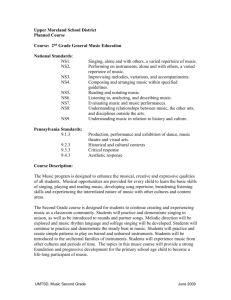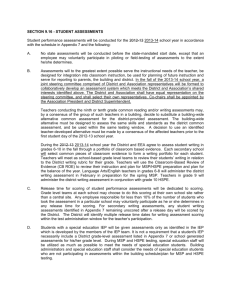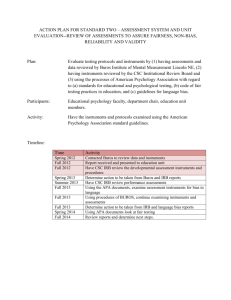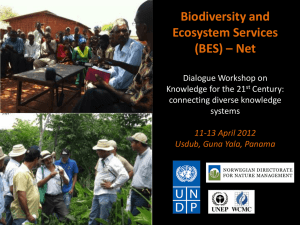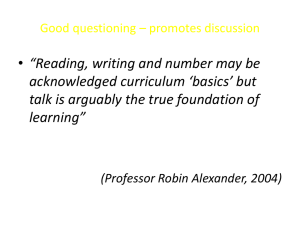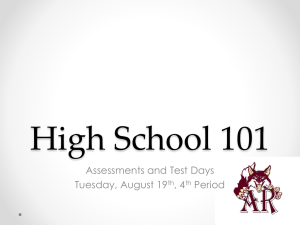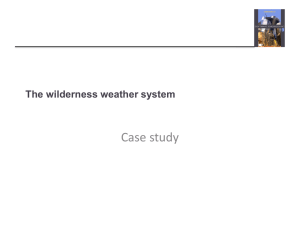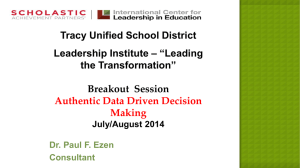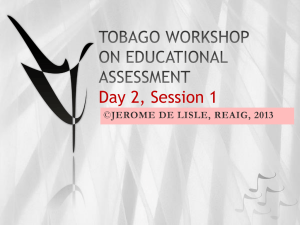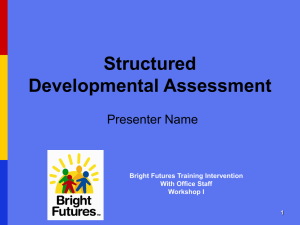AIM: K–8 Science
advertisement
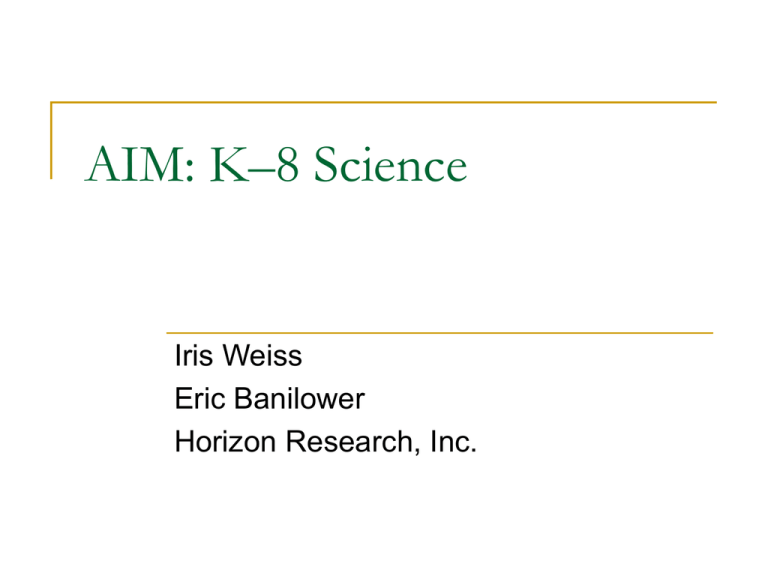
AIM: K–8 Science Iris Weiss Eric Banilower Horizon Research, Inc. MSP Theory of Action (Big Picture) Professional Development Teacher Knowledge, Beliefs, and Skills Classroom Practice Student Learning AIM: K–8 Science AIM is an NSF-funded MSP RETA AIM has the opportunity to develop instruments and collect data that no single MSP project has the resources to do. Study Component 1 Professional Development Teacher Knowledge, Beliefs, and Skills Classroom Practice Student Learning Study Component 2 Professional Development Teacher Knowledge, Beliefs, and Skills Classroom Practice Student Learning Topics 1. 2. 3. 4. 5. 6. Force and Motion Populations and Ecosystems (i.e., Interdependence) Climate and Weather Evolution and Diversity Forms of Energy Properties of and Changes in Matter Instruments Professional Development PD-Provider Log Capture what teachers experience in PD. PD providers complete a log at the end of each day of PD. 15 minutes or fewer to complete. Honorarium of $15 per completed log PD Observations HRI will observe a sample of PD sessions. Teacher Tracking System In addition to knowing what happens in PD, AIM needs to know which teachers attended each session. Teacher and Student Assessments Each assessment will take about 30 minutes to administer (all multiple choice). All teacher assessment items are set in the context of work that teachers do, e.g., using content knowledge to analyze student thinking. Instruments Classroom Practice Classroom Practice 1. Teacher questionnaire 2. Instructional practices Beliefs about effective instruction Teacher efficacy Contextual factors that affect science instruction Classroom observations Only for a subset of teachers Timeline Teacher assessments for Force and Motion; Populations and Ecosystems by summer 2010. Student assessments for these two topics ready for use in the 2010-11 academic year. Data collection will begin in summer 2010. Timeline Assessments for other topics will be ready the following year. We anticipate data collection continuing through at least the 2011-12 academic year. Re-Cap: Two Main Components 1. Relationship between PD and teacher knowledge. 2. Relationships among teacher knowledge, beliefs, classroom practice, and student learning. Projects can participate in either or both components for one or more topics. What’s Required to Participate Component 1: Complete PD-provider logs Submit teacher tracking data Administer content assessment to teachers preand post-PD Allow PD to be observed What’s Required to Participate Component 2: Administer content assessment to teachers prior to their teaching of the unit on targeted topic If teacher is participating in Component 1, the post-PD assessment may be used Administer student content assessment at the beginning and end of unit on targeted topic Administer teacher questionnaire Teachers complete while students are doing their posttest What Do Projects Gain by Participating? Opportunity to contribute to knowledge generation that will help the field in the future. Additional data for project-specific studies: PD-provider log data; Teacher assessment data; Teacher questionnaire data; and Student assessment data. We are looking for a set of projects that vary in their approaches to professional development and that have different school contexts. We will try to include as many projects as possible in the study, but need to make sure we get the right mix. How to Contact Us If you might be interested in participating: http://www.horizon-research.com/aim/signup How to contact AIM: aim@horizon-research.com Also of Possible Interest MSP-KMD has also developed a series of “knowledge reviews” that share research findings and practice-based insights: Deepening teacher content knowledge Preparing and deploying teacher leaders Involving STEM faculty Also of Possible Interest MSP-KMD has developed a searchable, online, database with information about instruments used to assess teacher content knowledge (mathematics and science, K–12). Can Search By: Content area Grade levels Nature of instrument, e.g., Any multiple-choice/constructed response assessments Assessments that include a scale score with information about reliability and validity Interview protocols Observation protocols The database currently contains summaries of 113 instruments, about 40 more to be added shortly. These resources are located at: http://www.mspkmd.net/ Disclaimer The instructional practices and assessments discussed or shown in this presentation are not intended as an endorsement by the U. S. Department of Education.

